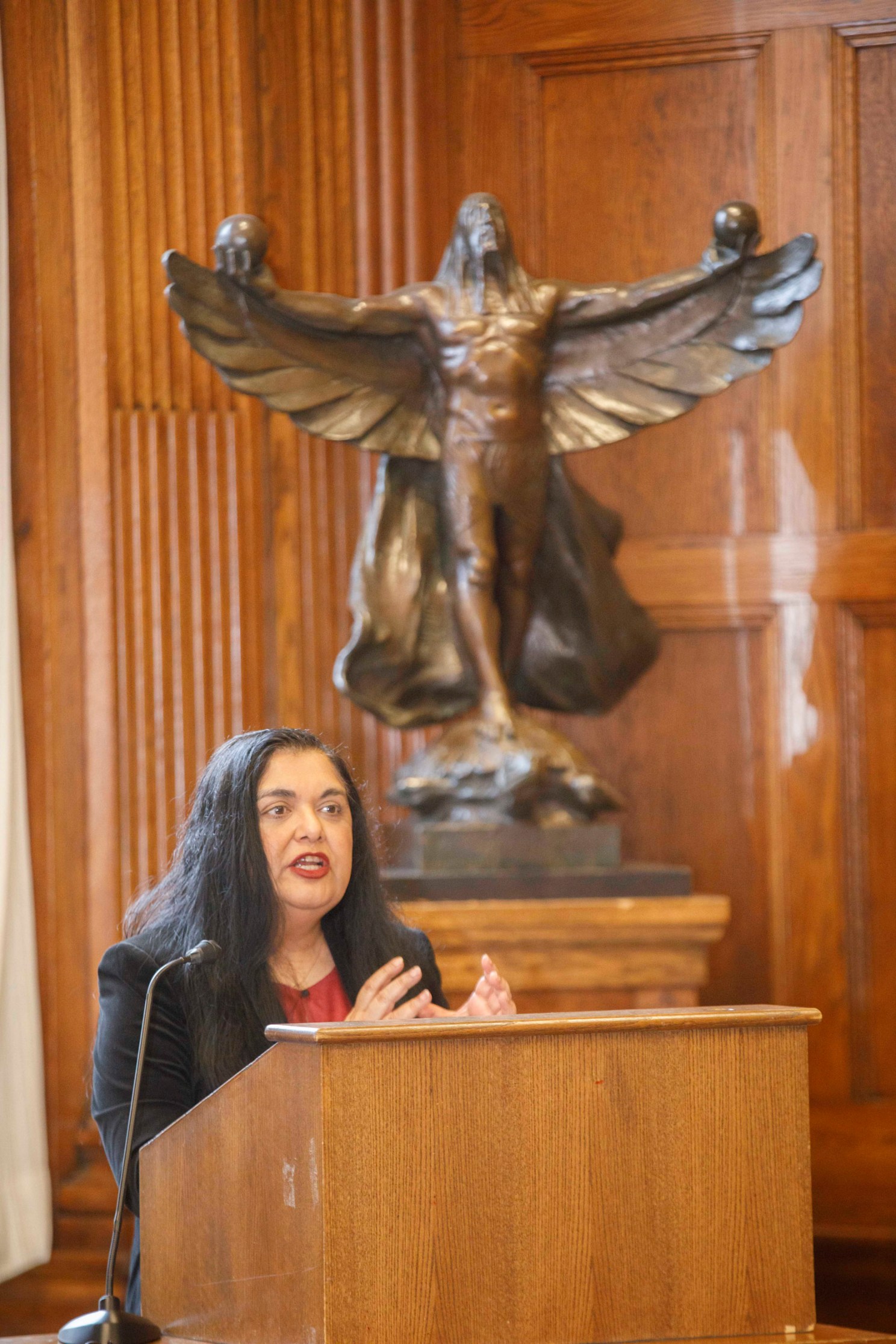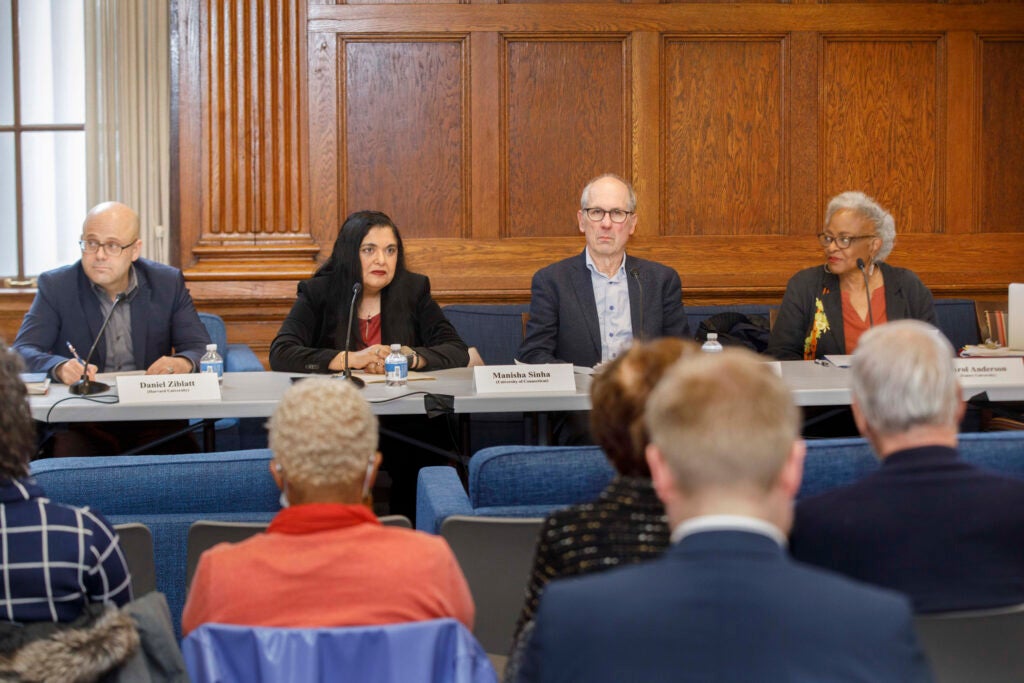
Manisha Sinha
Photos by Kris Snibbe/Harvard Staff Photographer
Historian sees a warning for today in post-Civil War U.S.
Past is present at Warren Center symposium featuring scholars from Harvard, Emory, UConn, and University of Cambridge
Americans need not look abroad for historical comparisons to authoritarian currents in the country today, according to University of Connecticut scholar Manisha Sinha. The post-Civil War U.S. offers plenty.
“We need to pay a lot of attention to the period after 1877 going right up until at least 1900,” Sinha said. “It is a compelling example of the overthrow of American democracy for a significant period in U.S. history, and one that is so pertinent for our own fraught times.”
Sinha’s take on the backlash to Reconstruction was part of a symposium that the Warren Center for Studies in American History hosted on April 4. “The Past, Present, and Future of American Democracy” featured four scholars who highlighted historical forerunners to recent political crises, including efforts to overturn the election of Joe Biden.
“It seemed the right time to host a conversation that brings together historically minded scholars to do what historians do best: use a historical angle of vision to help us understand our contemporary dilemmas,” said moderator Lisa McGirr, director of the Warren Center and the Charles Warren Professor of American History. The symposium was co-sponsored by the Center for American Political Studies, the Hutchins Center for African & African American Research, the History Department, and the American Studies program.
After the devastation of the Civil War, U.S. capitalism was successfully rebuilt even as the country’s newly interracial democracy collapsed, Sinha argued. The demise of Reconstruction’s reforms was followed by decades of what she called “reactionary authoritarianism.”

“Around 4 million enslaved won their freedom and citizenship rights only to be subject to a new regime of racist terror,” said Sinha, who was a 2007-08 faculty fellow at the Warren Center. “Despite the emergence of the suffrage movement, women remained disenfranchised; Asian American immigrants were systematically excluded; and strikes by workers of all ethnicities violently put down.”
The anti-democratic ethos was evident far beyond the Jim Crow South, said Sinha, whose new book, “The Rise and Fall of the Second American Republic,” examines tensions between democracy and capitalism from 1860 to 1920.
“The rapid industrialization of the country and the dismal conditions of labor that followed Reconstruction made a mockery of the free labor ideology of the victorious North,” she said. “New wars and imperial dreams of empire — inspired by the regime of racist apartheid in the post-Reconstruction South and the conquest of western Indian nations — further hollowed American democracy at home and abroad. By the end of the 19th century, a formal U.S. empire would subject people from the Caribbean to the Philippines to colonial rule.”
To be sure, Reconstruction itself represented “a truly emancipatory moment,” she said, emphasizing the power of the Equal Protection Clause embedded in the 14th Amendment, which was ratified in 1868. But that vision was eclipsed by a new ideology combining racism with suspicions of big government, she said, and the rise of these malign forces would have global ramifications.
“By the early 20th century, the United States was not only the city upon a hill, an unprecedented experiment in democratic republicanism, but it could now serve as a barbaric model of racist oppression,” she said. “The Jim Crow South, the genocide and warfare against Indian nations would inspire the Nazis in Germany as well as the apartheid state in South Africa.”
Also speaking at the symposium was American historian Gary Gerstle of the University of Cambridge, who offered up the New Deal of the 1930s and the triumph of neoliberalism in the 1990s as examples of Democratic progress and regress. African American Studies Professor Carol Anderson of Emory University gave an overview of her newly established Imagining Democracy Lab, with lessons on engaging young people drawn from the Civil Rights Movement and more. Harvard’s Daniel Ziblatt, Eaton Professor of the Science of Government and director of the Minda de Gunzburg Center for European Studies, drew from 2023’s “Tyranny of the Minority” to argue for reforms to the Constitution. The book, co-authored with Professor Steven Levitsky, includes a chapter on the democratic collapse that followed Reconstruction.




